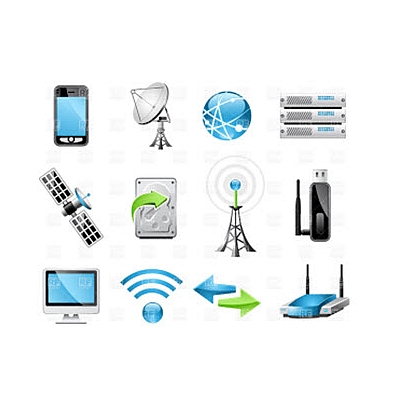EE4C13 Wireless systems for electrical engineering applications
In this course on RF electronics, you will learn about the commonly used architectures in wireless systems, with the requirements on their building blocks. The system key building blocks are addressed at their functional level regarding electrical properties, such as transfer/gain, noise, linearity, frequency selectivity, bandwidth, and other parameters. Physical constraints of practical components and circuits are used to identify the achievable signal quality, selectivity, sensitivity, and link budget of a wireless system.
The lectures will explain the causes and impact of device/circuit non-linearities and noise on wireless systems' sensitivity and dynamic range. The course will introduce the concepts of frequency generation, modulation/demodulation, and up/down conversion. To teach you to work at RF frequencies with wireless systems, the principles of impedance matching are explained, and tools are provided to analyze/design/characterize RF (matching) circuitry/systems. The common part of the course also includes an overview of the figure of merits (FoMs) of various TX/Rx architectures/system blocks and the required instrumentation to characterize them.
This course belongs to the RF/wireless profile and is an excellent preparation for the course; EE4605, “Integrated Circuits for RF/Wireless Applications,” which focuses on the design and realization of analog intensive building blocks for wireless transceivers as well as for ET4371, “Advanced Digital Wireless transceivers” which is addressing the latest trends in RF/wireless design aiming to fully utilize the integration and signal processing strengths of advanced CMOS.
The course is completed by four short specialization topics which can be followed based on your personal preference, namely:
- (1) Introduction to wireless power transfer technology,
- (2) Beamforming basics: concepts and architectures,
- (3) Neural Networks for Wireless & Radar Systems,
- (4) Hands-on experience with RF characterization equipment on practical circuits.
(The latter (4) has an attendee limit of 15 people.) Only one of these specialization topics is required to complete the overall course.
Teachers
prof.dr. Leo de Vreede (ELCA)
RF, Microwave, Power Amplifiers, Digital Transmitters, Device Characterization & modeling
dr. Morteza Alavi (ELCA)
RF Integrated Circuit
dr. Masoud Babaie (ELCA)
RF circuits
dr. Marco Spirito (ELCA)
(Sub)mm-wave electronics components and systems, (Sub)mm-wave characterization techniques and test benches, advanced RF calibration concepts for room-temperature and cryogenic applications.
dr. Chang Gao (ELCA)
Digital Circuit Design, AI Hardware, Deep Learning, Neuromorphic Computing
dr. Yanki Aslan (MS3)
Antennas; Electromagnetics; Wireless Communications; Beamforming; Cooling
Last modified: 2024-03-26
